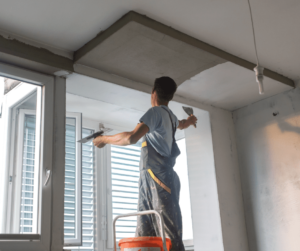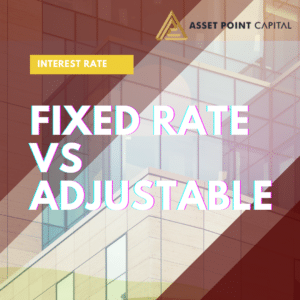by APCAdmin | Mar 3, 2022 | Articles
Ever heard of a recourse loan and a non-recourse loan? When it comes to borrowing money, there is a lot of financial jargon that can be confusing—including recourse and non-recourse loans.
However, understanding the distinctions between these two loans is critical if you’re about to take out a mortgage, auto loan, personal loan, or any other type of loan.
What is a Recourse Loan?
A recourse loan is a type of debt in which a lender can hold the borrower personally liable for repaying the debt. With recourse loans, the lender can pursue repayment of the loan beyond the original pledged collateral (which in real estate, is the property that was purchased).
If the borrower fails to repay the loan according to the obligation, the lender can take legal action in order to fully collect what is owed such as garnishing wages, levying accounts, or possibly pursuing other collateral owned by the borrower.

What is a Non-Recourse Loan?
If you get a non-recourse auto loan, for example, your car would likely be used as collateral on your loan. That means that, if you fail to repay your loan, your lender can take possession of your car and sell it in order to pay off the loan.
If the value of your car has depreciated more than the amount you owe at the time they repossess your car, then the lender is out of luck.
In a non-recourse loan, the lender cannot go after any of your other assets to make up the difference. For example, if you get a non-recourse personal loan without collateral and you used it to buy that car, your lender can’t seize your car or any other assets.
So what’s the difference?
As explained above, the biggest difference between a recourse loan and a non-recourse loan is that with a recourse loan you are personally liable to repay the lender in full when you default on your loan.
Who gets offered a non-recourse loan? Who doesn’t?
People with better credit will be more likely to qualify for a non-recourse loan than those who have fair or poor credit. Also your net worth, liquidity, and track record come into play when a lender is making a decision regarding what you qualify for.
If you have less-than-ideal credit, you may only be approved for a recourse loan or you might have to pay a very high-interest rate in order to get a non-recourse loan. That’s because the lender takes on more risk with non-recourse loans than with recourse loans.
We’re here to help
If you are preparing to finance a new property, compare the different loan options available to you and consider the advantages and disadvantages between a recourse loan or a non-recourse loan. You and only you can determine what type of loan is best for you.
To ensure you’re making the best real estate investment decisions for your goals, reach out to us at Asset Point Capital today.
by APCAdmin | Dec 30, 2021 | Articles
COVID decimated the hotel industry, bringing property values down significantly. Hotel owners will likely continue to struggle with uncertain demand and disrupted cash flow for the foreseeable future. With the housing crisis continuing unabated and hotel rooms sitting empty, people have speculated about the potential of using hotels for housing.

The hotel industry is in trouble.
The hotel industry took a double hit during the pandemic as travelers of all stripes — leisure and business — have been halting all movement for several months. Further, stay-at-home orders kept local or domestic travelers hunkered down in their homes. As a result, many hotel operators are feeling the pain.
In the worst-case scenario, average daily hotel rates will still be down 20% even by 2023. This long recovery, particularly for luxury and boutique hotels, presents acquisition scenarios for real estate investors who may be able to reposition the asset as a long-term multifamily asset.

Why convert?
People always need a roof over their heads.
Multifamily typically outperforms lodging assets during economic downturns for exactly the reasons you imagine: people are traveling less and saving money, but they still require a home and are less likely to purchase one as employment becomes precarious.
Expected revenue
Although a standard multifamily unit generates roughly 2.5 times less revenue per unit than that of a hotel room, it typically throws 60 percent of the revenue to the bottom line, compared to 35 percent for hotels. This supports considering a multifamily conversion because the revenue derived from annual leases is stickier than what is generated from the more transient hotel business.
Multifamily tenants are also more likely to renew their lease when it matures annually, creating a more predictable cash flow stream.

Overcoming challenges
In contrast to offices, hotels easily lend themselves to housing conversion. For those concerned about the expense, the signs here are promising. A hotel could, for example, be purchased for about $40,000 a unit and sold for $120,000 per unit. Since hotel layouts and plumbing are typically amenable to housing conversion, it’s a simple refurbish.
Another question about conversions is whether enough workable properties exist to meet housing demand. Building suburban housing is bread-and-butter work for most housing contractors. Converting hotels and especially office buildings is an entirely different ball game.
Add in considerations like historical landmark limitations and the risk associated with less common work, and pricing can go up, bringing back expense concerns.

We’re here to help
Investing in multifamily conversions of offices and hotels requires knowledgeable partners and informed decision-making. To ensure you’re making the best commercial real estate investment decisions for your goals, reach out to us at Asset Point Capital today.
by APCAdmin | Dec 3, 2021 | Articles

Fixed-rate mortgages and adjustable-rate mortgages (ARMs) are the two primary mortgage types.
While the marketplace offers numerous varieties within these two categories, the first step when shopping for a mortgage is determining which of the two main loan types best suits your needs.
A fixed-rate mortgage charges a set rate of interest that does not change throughout the life of the loan.
The initial interest rate on an adjustable-rate mortgage (ARM) is set below the market rate on a comparable fixed-rate loan, and then the rate rises (or possibly lowers) as time goes on.
ARMs are typically more complicated than fixed-rate mortgages.
by APCAdmin | Nov 26, 2021 | Articles

Real estate is one of the most profitable investment opportunities in the US. There are a number of factors that impact real estate prices, availability, and investment potentials. Understanding the key factors that drive the real estate market is essential to performing a comprehensive evaluation of a potential investment.
📍 Demographics – Income and population growth determines the growth of real estate
📍 Interest Rates – Low-interest rates on loans & properties increases investment opportunities
📍 Economy – Economic growth with an increase in income affects the demand for housing
📍 Government Policies – Government policies and subsidies boost demand for real estate
📍 Employment – High employment ratio leads to high property investment capacity
Contact us to learn how we can help you today!
🖱 https://assetpointcapital.com/
📱 (904) 647-4776
by APCAdmin | Nov 12, 2021 | Articles

With the current housing shortage, buyers often need to consider both new construction and resale homes to find one that meets their needs.
But there are some pretty big differences between the two, such as…
🕒 Timeframe
📍 Location
🛠️ Maintenance
♻️ Environmental Impact
🏡 Design Style
Whether you’re an experienced investor or just getting ready to buy your first property we’re here to help you get direct access to capital. 📈
Talk to us.
🖱 https://assetpointcapital.com/
📱 (904) 647-4776












Recent Comments